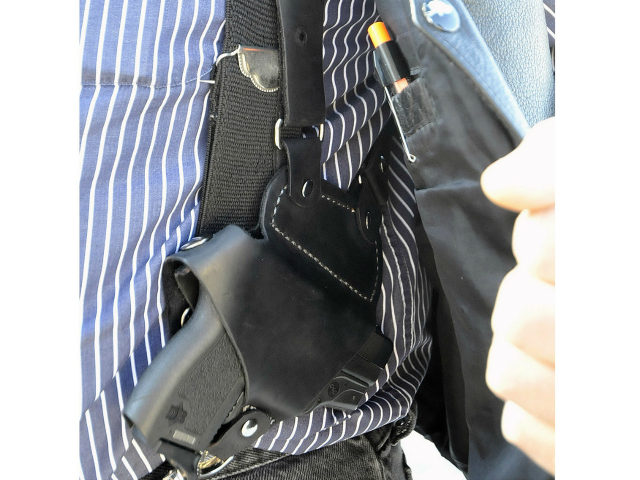The concealed carry policy currently formulated by Kansas State University (KSU) will allow campus-wide concealed carry once the law takes effect in July 2017.
Kansas’ campus carry law requires students to be allowed to carry a concealed handgun for self-defense in any building that “[doesn’t] have security measures, including metal detectors.” This gives universities the option to heighten security at all buildings–in an attempt to guarantee student safety–or to allow students to contribute to their own safety by carrying concealed in less-secure buildings. KSU’s current policy takes the latter position.
According to the Kansas City Star, “no residence hall, classroom, or other campus location would have the security measures that would allow a complete concealed carry prohibition.” But the current policy would allow concealed carry to be barred in locations where “temporary security” is in place.
The Star quotes a Manhattan Mercury report showing the proposed KSU concealed carry guidelines will be discussed at a September 15 forum and then submitted “to the Kansas Board of Regents for approval.” As currently framed, the KSU concealed carry policy will require permit holders to carry their guns in a holster rather than loosely in a bag or backpack.
On August 20, 2015, Breitbart News reported that Colorado’s campus carry policy had been in effect for 12 years with the result of no mass shootings and no crimes by concealed permit holders. A Washington Post story on the Colorado experience contained information from the U.S. Census Bureau which bolstered the argument that women under duress can preserve their lives and safety when allowed to carry a gun for self-defense.
The U.S. Census Bureau conducts in-person interviews with several thousand persons annually, for the National Crime Victimization Survey (NCVS). In 1992-2002, over 2,000 of the persons interviewed disclosed they had been raped or sexually assaulted. Of them, only 26 volunteered that they used a weapon to resist. In none of those 26 cases was the rape completed; in none of the cases did the victim suffer additional injury after she deployed her weapon.
AWR Hawkins is the Second Amendment columnist for Breitbart News and political analyst for Armed American Radio. Follow him on Twitter: @AWRHawkins. Reach him directly at awrhawkins@breitbart.com.

COMMENTS
Please let us know if you're having issues with commenting.